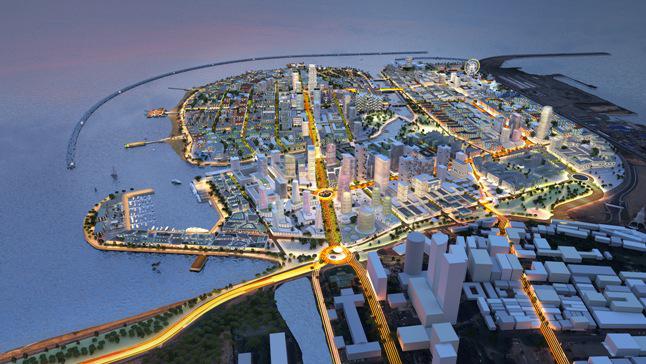Multiple articles of the Colombo Port City Economic Commission Bill are inconsistent with the constitution, and it can only be passed with a Special Majority and a referendum, the Speaker announced the Supreme Court determination on the bill to Parliament on Tuesday (18).
The determination as read out by the Speaker in Parliament:
I wish to inform the Parliament that I have received the Determination of the Supreme Court in respect of the Bill entitled ” Colombo Port City Economic Commission” which was challenged in the Supreme Court in terms of Article 121 (1) of the constitution.
The determination of the Supreme Court as to the constitutionality of the bill entitled ‘Colombo Port City Economic Commission’ is as follows:
- The provisions of clauses 3(6), 30 (3) second proviso, 55(2) and 58 (1) of the bill are inconsistent with Article 12 (1) of the constitution and could be validly passed only with the Special Majority provided for in Article 84 (2) of the constitution.
However, the said inconsistencies will cease if the clauses are amended as mentioned in the determination of the Supreme Court.
- The provisions of clauses 3 (5) proviso, 3 (7), 6 (1) (b), 30 (3) first proviso, 71 (1), and 74 (Interpretation ‘Regulatory Authority”) of the bill are inconsistent with Article 12 (1) of the constitution and could be validly passed only with the Special Majority provided for in Article 84 (2) of the constitution.
However, the said inconsistencies will cease if the clauses are amended as mentioned in the determination of the Supreme Court.
- The provisions of clauses 3 (4), 6 (1) (u), 68 (1) (f) and 68 )3) are inconsistent with Article 76 read with Articles 3 and 4 of the constitution and could be validly passed only with the Special Majority provided for in Article 84 (2) of the constitution and approved by the People at a Referendum by virtue of the provisions of Article 83.
However, the said inconsistencies will cease if the clauses are amended as mentioned in the determination of the Supreme Court.
- The provisions of Clause 52 (3) read with clauses 52 (5) and 71 (2) (p) of the bill are inconsistent with Article 148 of the constitution and could be validly passed only with the Special Majority provided for in Article 84 (2) of the constitution and approved by the People at a Referendum by virtue of the provisions of Article 83.
However, the said inconsistencies will cease if the clauses are amended as mentioned in the determination of the Supreme Court.
- The provisions of Clauses 30 (1), 33 (1), 40 (2), and 71 (2) (l) of the bill are inconsistent with Article 14 (1) (h) of the constitution and could be validly passed only with the Special Majority provided for in Article 84 (2) of the constitution.
However, the said inconsistencies will cease if the clauses are amended as mentioned in the determination of the Supreme Court.
- The provisions of clauses 53 (2) (b) read with clause 53 (3) (b) of the bill are inconsistent with Article 76 of the constitution read with Articles 3 and 4 of the constitutions and could be validly passed only with the Special Majority provided for in Article 84 (2) of the constitution and approved by the People at a Referendum by virtue of the provisions of Article 83.
However, the said inconsistencies will cease if the clauses are amended as mentioned in the determination of the Supreme Court.
- The provisions of clauses 60 (c) and clause 60 (f) of the bill is inconsistent with Article 148 of the constitution and could be validly passed only with the Special Majority provided for in Article 84 (2).
However, the said inconsistencies will cease if the clauses are amended as mentioned in the determination of the Supreme Court.
- The provisions of clause 37 of the bill is inconsistent with Article 12 (1) and 14 (1) (g) of the constitution and could be validly passed only with the Special Majority provided for in Article 84 (2).
However, the said inconsistency will cease if a new sub-clause is added to clause 37 of the bill restraining such authorized person making use of any exemptions or incentives granted under this bill when conducting business outside the area of authority of the Colombo Port City to the detriment of similar businesses conducted outside such area of authority by within the territory of Sri Lanka.
The Supreme Court had determined that the rest of the clauses of the bill are not inconsistent with the constitution.


